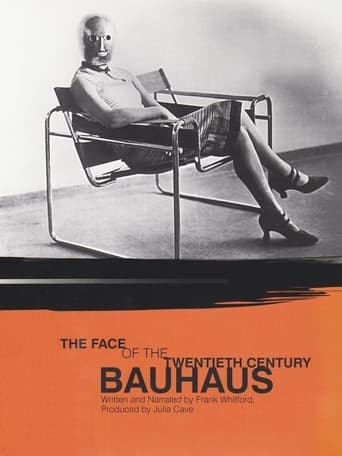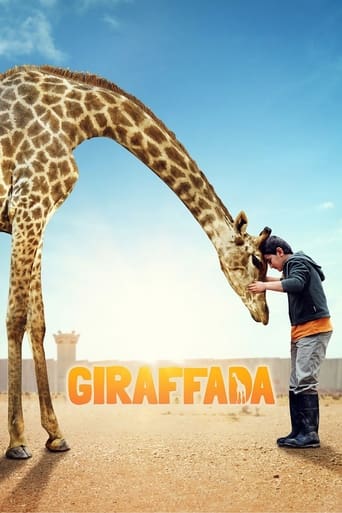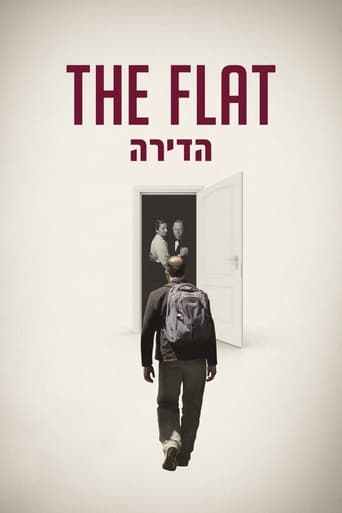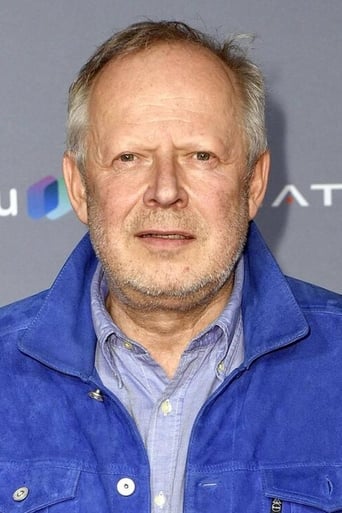The flat on the third floor of a Bauhaus building in Tel Aviv was where my grandparents lived since they immigrated to Palestine in the 1930s. Were it not for the view from the windows, one might have thought that the flat was in Berlin. When my grandmother passed away at the age of 98 we were called to the flat to clear out what was left. Objects, pictures, letters and documents awaited us, revealing traces of a troubled and unknown past. The film begins with the emptying out of a flat and develops into a riveting adventure, involving unexpected national interests, a friendship that crosses enemy lines, and deeply repressed family emotions. And even reveals some secrets that should have probably remained untold...


Similar titles



Reviews
I wanted to like this documentary. After the first ten minutes I was ready to Love it. Something like this can only happen once in a lifetime and Arnon Goldfinger was at the heart of a discovery that would change many a life and alter the perspective of your whole reality.How can a former SS Officer's family and a Jewish family who had to leave Germany maintain a friendship, forgetting all that has gone before and finding solace in the mutual reconciliation of a friendship that could survive even the greatest Horrors of the 20th Century and the modern enlightened era?After a few minutes of this documentary I fell in love with the idea and was hoping that Arnon would call up a real documentary maker like Louis Theroux or anyone non-biased who could provide a well educated, non-egotistical objective view of the whole situation. Instead what we are delivered is one man's ignorant state of being, of not accepting 100 years of history. Blinkered by his own hangups and of a complete refusal to think that anyone could be friends after things that have never even directly affected him in his own life, Arnon goes around with arms folded and Tiger like glare in his eyes trying to force his attitude on everyone he comes across. He talks over people who make excellent points, and tries to hammer a life changing reality on a family that were so much happier before he ever entered their lives. The Von Mildenstein family approached everything from a well educated, very reasonable point of view. They share when needed and allow for new aspects and revelations, but when Arnon turns up in the end and says that "I felt you should know" that he had not backed down, researched Herr Von Mildenstein, and had traveled all the way to bloody Wuppertal to deliver this message was so infuriating that I actually paused the film and walked away for a good ten minutes before finishing the film. Real journalism would have seen many more bases covered. With a view from all sides, maybe even (god forbid) a bit of understanding or sympathy.Real journalism would have opened new doors and at the same time used all previous evidence to help form a balanced view of history, the present and the future.Real journalism is not one man trying to make himself feel better by being the one dog who will not let go of the same old bone. There are plenty more bones to be found.As it is, this documentary reveals nothing, accomplishes nothing, neglects everything and serves as a good waste of digital memory.I am so sad that I just sat through the whole thing and still don't know if Arnon feels better about himself. And I don't care. His parents and his grandparents were able to live happily and clearly were far more open minded to peace and harmony than he will ever be.I just felt like I was watching one man and his mid-life crisis unfolding before my very eyes. You cannot undo history Arnon, you can only make today better.
Having read multiple reviews before watching "The Flat" I knew that I would enjoy the film. It is a documentary of a family coming to terms with the death of matriarch and uncovering secrets about the Holocaust and relationships both within in the family and between cultures. Although slow at points, the film also has moments of deep emotional intensity as the protagonists asks simple questions of his family and newly discovered acquaintances/friends. The insights gained through the revelations are also highlighted by well-placed conversations with experts who try and decipher the nature of the relationships and how they influenced how the family tried to find their place in the world. Overall, a visceral film that should be seen by anyone who has interest in how their parents/grandparents deal with the aftermath of tragedy which in this movie revolves around the Holocaust.
'Compartmentalization' is a type of psychological defense mechanism where a person has very conflicting values and/or behaviors and keeps them separate in their mind in order to avoid discomfort. An example would be a man who beats his wife and kids and yet otherwise appears to be a pillar of the community. While the term is never used in "The Flat", compartmentalization is a HUGE theme throughout this very unusual film.Aron Goldfinger made this documentary (using simple equipment) about his grandparents. It seemed when his grandmother died in her late 90s, the family began taking all of the old woman's things out of the apartment she had shared with her husband for many years in Tel Aviv, Isreal. During this process, something very strange turned up--a collection of photos and correspondences between the grandparents (the Tuchlers) and the von Mildensteins back in Germany. What made this so strange? Well, the Tuchlers were Jews who left Germany to avoid the Holocaust and Mr. von Mildenstein was a high Nazi official! In fact, although his own family today didn't know it (they thought he was a reporter), von Mildenstein actually hired Adolf Eichmann (one of the major architects of the 'final solution') and later worked for Josef Goebbels' Propaganda Ministry--and yet, as I said above, the Tuchlers and von Mildensteins remained friends and even visited each other in the years AFTER WWII! Yet, Mrs. Tuchler's own mother was killed by the Nazis! Wild, weird and a bit sad---this is a very unusual film that will pique your curiosity. Overall, a very intriguing little film indeed!
The death of six million Jews in Nazi concentration camps during World War II is a well known fact. What is less known and generally not talked about is that there were Jews who, for whatever reason, collaborated with the Nazis. Though Jews were forbidden to join the Nazi Party, some were members of the ghetto police that helped round up Jews for deportation, some were known as Judenrats who, under Nazi orders, compiled a list of other Jews to be deported. Others edited pro-Nazi anti-Semitic magazines, turned in fugitive Jews hiding under false identities, or were informers and Kapos who served as Nazi enforcers in the concentration camps.The issue of possible Jewish collaboration comes up in Amon Goldfinger's award-winning documentary The Flat, a story of three generations of Jews seeking to come to terms with uncomfortable events in their family history. A short time after their 98-year-old grandmother dies in Tel Aviv, the son Amon, who is also the writer and director of the film, together with his mother Hannah begin the process of going through mountains of the grandmother's accumulated belongings including books, clothes, antiques, letters, and photos. It is readily apparent that the grandparents, Gerda and Kurt Tuchler, who came to Palestine from Germany at the beginning of the war, retained a strong identity with the old country."They never leave their homeland behind," Amon remarks, noticing that Gerda's books are all in German and that neither of his grandparents ever learned Hebrew. He also discovers a strange two-sided coin that has a Star of David on one side, and a Nazi swastika on the other side. In looking through piles of letters, Amon is baffled by finding a Nazi propaganda newspaper, Der Angriff, containing an article titled "A Nazi in Palestine," showing pictures of his grandparents accompanied by SS member Baron von Mildenstein, and his wife during a trip to Palestine in 1934. After more searching, Amon finds that other letters and photos reveal that the Tuchlers maintained a friendship with the Mildensteins during and even after the war, even though Gerda's mother had been killed at Theresienstadt.Mother and son travel to Berlin to meet with their remaining relatives and try to make some sense of the relationship their grandparents had with the von Mildensteins. They also travel to Wuppertal, Germany to engage in conversation with the Mildenstein's daughter Edda. In the beginning, the discussion is friendly but becomes more and more uncomfortable as Edda repeatedly denies that her father was ever a Nazi official. Unwilling or unable to confront deeply unpleasant truths, Hannah insists that she knows nothing about her parent's friendship with the Mildensteins, had never asked about it, and that children in her day were brought up to not ask any questions.Though the truth is incomplete and still uncertain in its scope and detail, both Edda and Hannah remain in denial that anything out of the ordinary took place, unwilling to confront troubling aspects of the Jewish past. The Flat is short on dramatics but it serves as a potent reminder that, as author Andrew Sullivan has said, "When there's a challenge to our established world-view, whether from the absurd, the unexpected, the unpalatable, the confusing or the unknown, we experience a psychological force pushing back, trying to re-assert the things we feel are safe, comfortable, and familiar," or as Matthew Henry put it, "None are so blind as those who will not see."


